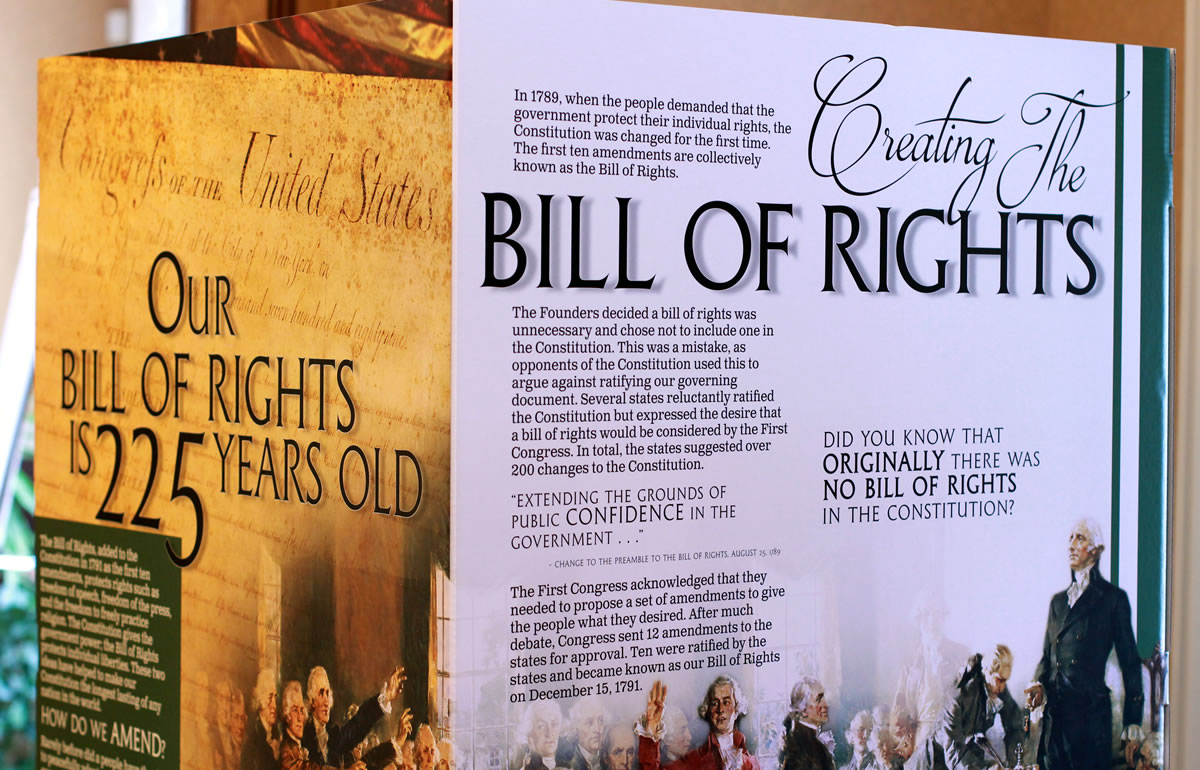
- This event has passed.
The Bill of Rights and You: National Archives Exhibit
January 18, 2017 - January 21, 2017
$5
The Raton Museum is hosting a new pop-up exhibition from the National Archives, The Bill of Rights and You, commemorating the 225th anniversary of the ratification of this landmark document. The Bill of Rights and You spotlights one of the most remarkable periods in American history, explores the origins of the first ten amendments to the U.S. Constitution (collectively known as the Bill of Rights), illustrates how each amendment protects U.S. citizens, and looks at how Americans exercise the rights outlined in the amendments. The Bill of Rights and You invites visitors to connect directly with the people, places, and events that mark this historic document’s evolution. This exhibit runs through March 4,2017.
The Bill of Rights and You co-curator Jennifer Johnson states:
“The Bill of Rights represents the Founder’s vision that it would be the people, through votes, that could change the Constitution with enough consensus. And when the people desired a Bill of Rights, our first ten amendments were added to our governing charter.”
Educational activities and resources are available for schools and organizations that are interested in coordinating study plans with this exhibition. Contact the Raton Museum to schedule your trip. The Raton Museum is open Wednesday – Saturday, 10:00am to 4:00pm Phone # 575-445-8979, email ratonmuseum@gmail.com, website www.theratonmuseum.org.
The Bill of Rights and You is organized by the National Archives and Records Administration, and traveled by the National Archives Traveling Exhibits Service (NATES). This exhibition was developed in collaboration with the National Archives’ National Outreach Initiative to commemorate the 225th Anniversary of the Bill of Rights. The exhibition is presented in part by AT&T, Seedlings Foundation, and the National Archives Foundation.
This exhibit is brought to you in collaboration with the New Mexico Humanities Council and the Federation of State Humanities Councils.

Be First to Comment